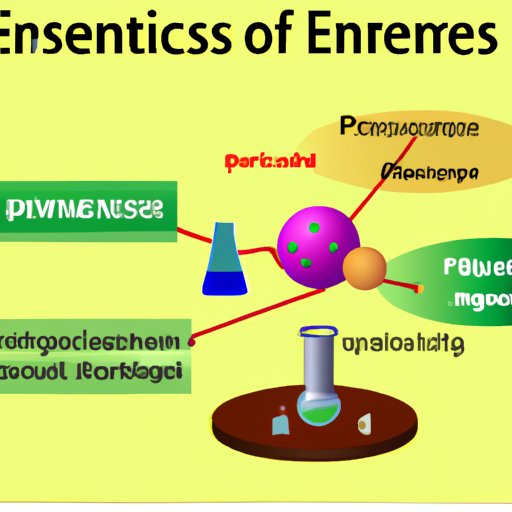Introduction
Physical science is a broad term that encompasses many different branches of science, including physics, chemistry, astronomy, and Earth sciences. It is a field of study that examines the physical properties of matter and energy and their interactions with one another. The purpose of this article is to provide a comprehensive guide to physical science, exploring its basic principles, examples of how it impacts our lives, and potential uses in the future.

Exploring Physical Science: A Comprehensive Guide
Physical science is an expansive field that covers a wide range of topics. To get a better understanding of physical science, let’s take a closer look at some of its basic principles, examples of how it impacts our lives, and its potential applications in industry and technology.

A Primer on the Basic Principles of Physical Science
At its core, physical science is all about understanding the behavior of matter and energy. As Nobel Prize-winning physicist Richard Feynman once said, “The principles of physics, as far as I can see, are not capable of being changed or altered.” This means that all physical phenomena can be explained using the same set of laws and principles. Let’s take a look at some of the fundamental concepts of physical science.
One of the most important concepts in physical science is the idea of forces. Forces are invisible influences that cause objects to move, accelerate, decelerate, or remain in a state of equilibrium. Examples of forces include gravity, magnetism, and friction. In order to understand how these forces work, we must first understand the concept of energy. Energy is the capacity to do work and comes in many different forms, such as kinetic, potential, thermal, electrical, and chemical energy.
Matter is another key concept in physical science. Matter is anything that has mass and occupies space. All matter is composed of atoms, which are the smallest particles that make up all physical objects. Atoms are composed of even smaller particles, such as protons, neutrons, and electrons.
How Physical Science Impacts Our Everyday Lives
Now that we have a better understanding of the fundamental concepts of physical science, let’s take a look at how it impacts our everyday lives. There are countless examples of physical science in action, from the way we use electricity to the design of modern buildings and vehicles.
For example, when you switch on a light bulb, you are utilizing the principles of electricity. When you drive your car, you are relying on the principles of mechanics and thermodynamics. Even a simple task like boiling water requires an understanding of the principles of heat transfer.
By understanding the principles of physical science, we can gain a better appreciation for the world around us and how it works. This knowledge can help us make more informed decisions in our everyday lives, from choosing energy-efficient appliances to designing safer and more efficient vehicles.
A Overview of Physical Science and Its Applications
Physical science has many different branches, each of which focuses on a specific aspect of the physical world. These branches include physics, chemistry, astronomy, and Earth sciences. Within each branch, there are numerous subfields and specialties.
Physical science also has many practical applications in industry and technology. For instance, advances in physics have enabled us to develop new technologies, such as x-ray machines and lasers. Chemistry has allowed us to develop new materials, such as plastics and composites. Astronomy has helped us to explore the universe beyond our planet Earth. And Earth sciences have enabled us to better understand our environment and the impact of human activities on it.

The Benefits of Understanding Physical Science
In addition to its practical applications, understanding physical science can also be beneficial for personal growth and development. By gaining a better understanding of the physical world, we can enhance our knowledge and skills and open up new career opportunities. For instance, having a strong foundation in physical science can be helpful for those who wish to pursue careers in engineering, medicine, or research.
What Does Physical Science Mean for Our Future?
As physical science continues to evolve, so too will its practical applications. Advances in physics, chemistry, astronomy, and Earth sciences can have a profound impact on our lives, from helping us to better understand the universe to developing more efficient and sustainable technologies. We can also use physical science to forecast the potential impact of climate change and other environmental issues and investigate new possibilities for living in harmony with nature.
Conclusion
In conclusion, physical science is a vast and complex field of study that encompasses many different branches. By understanding its basic principles and exploring how it impacts our lives, we can gain a greater appreciation for the physical world and its potential applications in industry and technology. By enhancing our knowledge and skills, we can also open up new career opportunities. Finally, by forecasting the potential impact of physical science on our future, we can investigate new possibilities for living in harmony with nature.
(Note: Is this article not meeting your expectations? Do you have knowledge or insights to share? Unlock new opportunities and expand your reach by joining our authors team. Click Registration to join us and share your expertise with our readers.)
